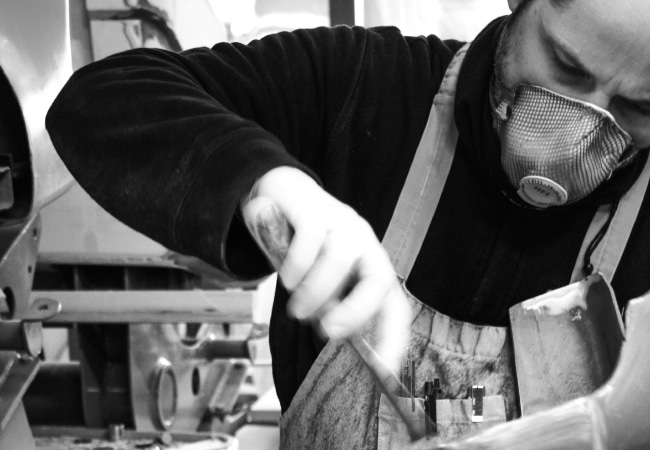Artisanship is a word that holds multiple meanings, often associated with the renowned “know-how”, or with the culture of making. The modern artisan is an artist that respects the tradition, but he/she is led to innovation. He/she is flexible and independent, naturally combines knowledge (theoretical culture) with know-how (practical culture) in a constant process of reshaping and reinventing his work.
Craftsmanship is born from a technical act that sometimes has created real artistic trends: from the creation of a product or a tool, or the invention of a specific material (from fabrics to ceramics). It is therefore a sophisticated form of innovation that can lead to new growth dynamics. In Zamperla, we do understand the importance of the perfect balance between craftsmanship and technology and the importance of an artisanal vision of innovation which focuses not so much on substitution, but on empowerment to either develop more precise products, or develop them faster and with less effort.
The modern craftsman is technological, he/she prefers to call himself/herself a “maker”, combining tradition and technology to bring modernization. For many years crafts and manual professions have been considered a legacy of the past, but we believe that only technological research can help us design the future. It is the union, rather than the contrast, of these two worlds that creates a powerful accelerator of innovation, the keystone of a change.
A CRAFTSMAN INNOVATES THROUGH THE TOOLS OF HIS WORK, THROUGH NEW MATERIALS AND NEW APPROACHES. THE CRAFTSMAN’S WORK DOESN’T CONSIST IN UNCRITICALLY PRESERVING THE PAST, BUT IT IMPLIES A PROCESS OF TRANSFORMATION OVER TIME AND THE ACCEPTANCE OF THE CHALLENGE OF TECHNOLOGY.
Italy is the country of “makers” par excellence: this means that our artisans are the protagonists of a new industrial revolution centered on a different idea of work and value that allows to mix craft skills with industrial skills for a sustainable economic one for the future. Experimental projects and real experiences taking place in the world confirm that the evolution of traditional craftsman know-how through contemporary technological tools is a shared strategy that can be declined in different ways.
With our division and “craft laboratory” Area Manuale, we work with 20 years of experience in the fields of prototyping and molds. We believe that top level technologies can only enhance the quality and the mastery of our craftsmen’s work, optimizing the production without affecting excellence.
